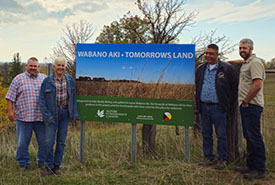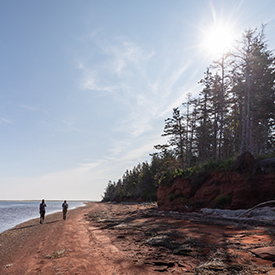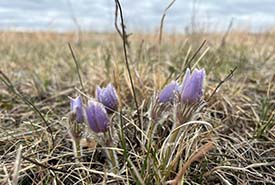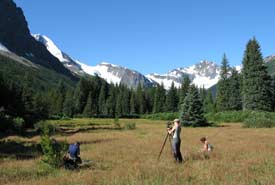Reflecting on a year of collaboration on National Indigenous Peoples Day

L-R: Kevin Teneycke, Gordon Beddome, Ken Norquay and Josh Dillabough at Wabano Aki (Photo by Fayaz Hasan / NCC Staff)
Today, June 21, is National Indigenous Peoples Day. At the Nature Conservancy of Canada (NCC), we celebrate and honour the unique diversity, cultures and contributions of Indigenous Peoples across the country.
NCC works on the traditional territories of many Indigenous Nations. We recognize the Indigenous communities, individuals and organizations who have provided leadership, partnership and collaboration with us.
Read more below about projects and partnerships we celebrate from the past year:

Kwesawe'k (Oultons Island), PEI (Photo by Stephen DesRoches)
-
Kwesawe’k: Significant milestone reached in landmark Epekwitk (Prince Edward Island) conservation project.
-
The Kespukwitk Conservation Collaborative: In partnership to protect southwest Nova Scotia.
-
Qalipu First Nation: Memorandum of understanding signed with NCC in Ktaqmkuk (Newfoundland).
-
Wabano Aki: Important cultural-agricultural-conservation partnership announced in Manitoba.
-
Wanuskewin Heritage Park, Saskatchewan: Co-hosts of the 2023 and 2024 Big Backyard BioBlitz.
NCC has much to learn from Indigenous Peoples to become better land managers and conservationists. We also have a unique opportunity to support Indigenous communities and Nations in achieving their conservation and stewardship goals.

Prairie crocus at Wabano Aki, MB (Photo by Lauren James/NCC Staff)
The 2022 Global Biodiversity Framework includes new ambitious targets for area-based conservation measures and aims to increase the global coverage of protected areas and other effective area-based conservation measures to at least 30 per cent by 2030 (30X30).
The accelerated targets of the 2022 Global Biodiversity Framework cannot be reached without Indigenous-led conservation, and private land conservation organizations such as NCC have a significant role in learning from and supporting these efforts.
NCC acknowledges that Indigenous Peoples are the original stewards of the land and have been for millennia. As Indigenous Peoples are increasingly being recognized as decision-makers of the land, we are encouraged by these changing dynamics. Today, and every day, we celebrate Indigenous-led conservation.


